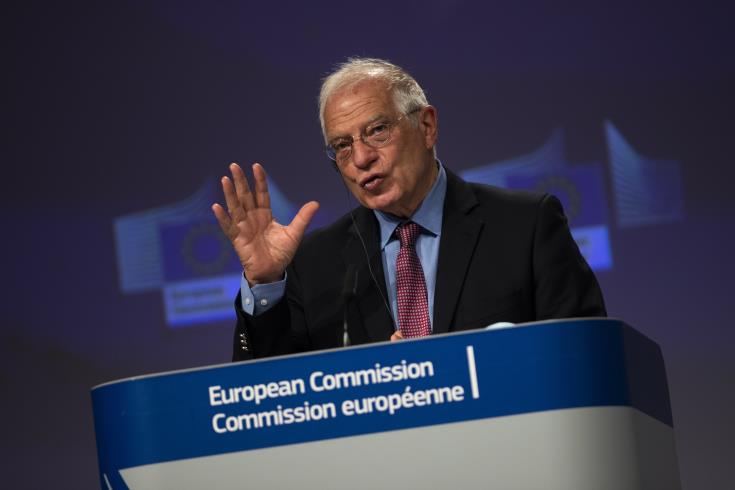Ankara’s failure to recognise the Republic of Cyprus blocks its path to normalising ties with the European Union, warned the EU’s foreign policy chief Josep Borrell in his report on Turkey.
He also argued that EU-Turkey relations would remain “extremely challenging” in the absence of Cyprus’ reunification.
“The Cyprus settlement issue is a core element of Turkey’s strong disagreements with the EU in the Eastern Mediterranean,” said Borrell’s report.
“During 2020, hope for progress on the Cyprus settlement process had to be put on hold until after the elections of the Turkish Cypriot community in October-November 2020.
“The electoral context led to an increase in polarising rhetoric and provocations, prompting strong reaction from the EU as reflected in Council and European Council conclusions.”
Brussels has expressed full support for the United Nations Secretary-General (UNSG), aiming at the speedy resumption of the Cyprus settlement talks.
Both the EU and the UN asked Turkey to reverse its unilateral action in Varosha in November 2020 in opening up the fenced-off area of the beach.
“Talks between the two communities, eventually leading to an agreement, are essential for decreasing tensions in the Eastern Mediterranean.”
“A number of proposals for confidence-building measures have been exchanged among the parties, including on the sharing of revenues from the exploitation of hydrocarbons, and the EU continues to stand ready to facilitate the necessary technical work in this regard.
“Positive outcomes related to practical and vital issues for the Turkish Cypriot community – such as facilitation of export of Halloumi/Hellim cheese and distribution of COVID-19 vaccines – could lead to an environment conducive to more trust,” said Borrell.
He said Turkey’s relationship with the EU has progressively deteriorated, especially over tensions in the eastern Mediterranean over disputed energy exploration.
“It is clear how Turkey’s non-recognition of the Republic of Cyprus continues to lead to the blockage of different paths of cooperation.
“Normalisation of EU-Turkey relations will remain extremely challenging in the absence of a solution to the Cyprus issue.
“This has been mostly due to Turkish actions in the Eastern Mediterranean, directly challenging the rights of the Republic of Cyprus in its maritime zones, and a sharp increase of Turkey’s provocative actions against Greece.”
Borrell argued that Turkey’s threatening actions, disparaging rhetoric, assertive interventions in surrounding regional conflicts were at odds with broader EU interests.
“Moreover, the further deteriorating domestic situation in Turkey, notably in the area of fundamental rights and economic governance, has had clear negative effects on Turkey’s relations with the EU Member States and the bilateral EU-Turkey agenda.”










